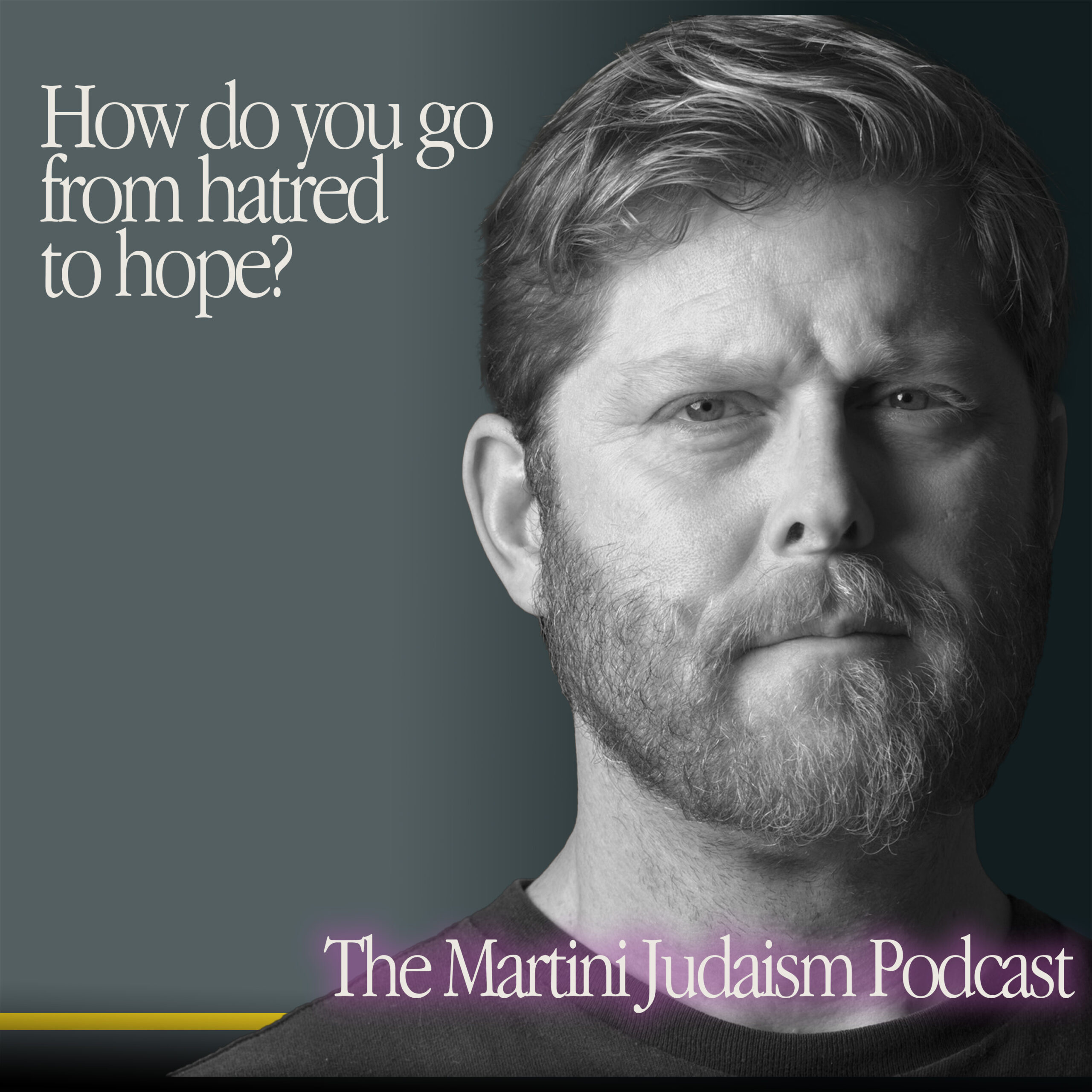
The Days of Awe are upon us. They always hit me with a familiar, bracing urgency: Look at your life. Consider your words, your choices. Where have you failed? Whom have you harmed? What will it take to begin again?
If we’re honest, most of us spend these days trying to clean up the usual messes: the casual slight, the simmering resentment, the careless word that cut deeper than we knew. We rehearse our regrets, and we whisper our promises to do better.
But once in a while, a life comes along that reminds us just how radical, how shattering, how possible teshuvah (repentance) really is.
That life belongs to Arno Michaelis. Check out our podcast with him.
Arno grew up in Milwaukee, in a home heavy with neglect and absence. Like so many young men, he longed for belonging, for a banner to stand beneath. He found it—in the worst of places.
White supremacy gave him a ready-made identity. Violence gave him purpose. Hate gave him a family. He became a neo-Nazi, a skinhead, a man whose entire life was an affront to God’s dream of human dignity.
Sin is not always subtle. Sometimes, it is loud, violent, and cruel. Sometimes, it wears combat boots.
And yet, as the late Leonard Cohen sang: “There is a crack in everything. That’s how the light gets in.”
For Arno, the cracks began to show: prison time, a near-fatal beating and finally—a doorstep moment with his own little boy. Standing there, looking at his son, he felt the sting of his own legacy. That was the doorway to teshuvah, repentance.
He read Viktor Frankl in prison. He learned that even in a self-made dungeon, you can choose meaning. He began to name his sins, to reckon with the wreckage he had caused—including against Jews. This is cheshbon ha-nefesh—not just tallying your deeds, but interrogating the self that produced them.
Arno didn’t stop at regret. He co-founded Life After Hate, a nonprofit that helps others leave extremist movements. He sought out those he had harmed. He asked for forgiveness.
Can you imagine the courage it takes for a former white supremacist to stand before Jews and say, “I was wrong. I am sorry”?
That’s not a Hallmark version of repentance. That is not only remorse, not only apology, but the daily grind of repair. It is a kind of repair that echoes across the Jewish world, and across the generations.
So, what does Arno’s story teach us, as we prepare to stand before God — and ourselves?
- Sin often hides a wound. Arno’s craving for belonging drove his descent. We must ask ourselves: where are our empty, yearning places, and what are we doing to fill those voids?
- Repentance means expanding your sense of yourself. It’s not only between us and God; it’s between us and the people we’ve wounded.
- Repentance requires raw courage. To say, “I was wrong” — without excuse, without defense — that is the spiritual equivalent of standing naked before the world. It means canceling your ego, for just a nano-second. In Hasidic thought, God and the human ego cannot co-exist in the same space. So, to repent means admitting your own voids, and bringing God into those empty places.
- No one is beyond return. Judaism never gives up on the human possibility of change. The High Holy Day liturgy itself makes it clear: “Until the day of our death, God waits for us.”
I prepared for the Days of Awe by listening to an Israeli singer named Aya Korem. She has translated Leonard Cohen’s songs into Hebrew. In her rendition of his song “Who by Fire,” which is itself a re-writing of the Unetaneh Tokef prayer, she translates his line: “Who shall I say is calling?” into “What is the voice that says: Ayeka — where are you?”
That is the only question worth asking at this season. Where are you? And when we get to the Unetaneh Tokef, and we find these words “Who shall live, and who shall die…” let us re-arrange the letters of the word “who” into “how.” How shall we live?
If Arno Michaelis can emerge from the pit of hate into the light of repair, then what excuse do the rest of us have for clinging to our grudges, our petty sins, our convenient self-deceptions?
We are all capable of beginning again.
In my new book, Inviting God In: A Guide to Jewish Prayer, I remind my readers that there are three acts of repair in Judaism. The most famous is, of course, tikkun olam — repairing the world, which modern Jews translate into acts of social justice. There is tikkun ha-am, repairing our people.
But, there is that third act of repair — tikkun atzmi, repairing my self.
That is what repentance really is.
Come to think of it — all the good words of this season are RE words.
- Review
- Reckon
- Remember
- Reconcile
- Repair
- Repent
- Return
- Renew
May we have the courage to go through all of those R words. May we have the inner strength to say the words that heal the world, our people and our selves: I was wrong. Forgive me. I will start again.
But, of course, producing this journalism carries a high cost, to support the reporters, editors, columnists, and the behind-the-scenes staff that keep this site up and running. That's why we ask that if you can, you consider becoming one of our donors. Any amount helps, and because we're a nonprofit, all of it goes to support our mission: To produce thoughtful, factual coverage of religion that helps you better understand the world. Thank you for reading and supporting RNS.
